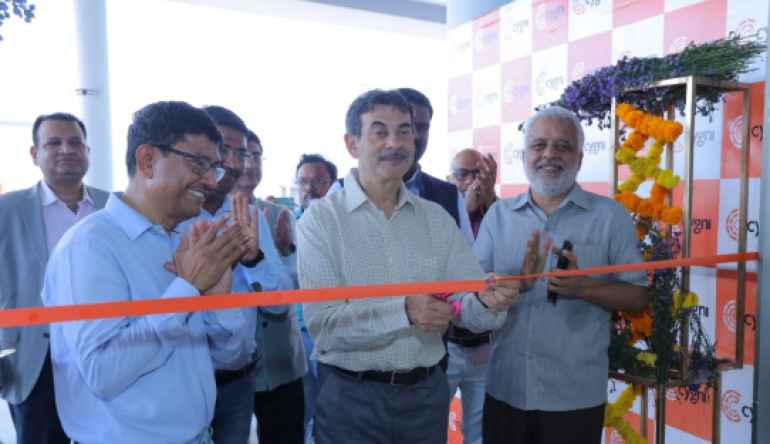
Follow India Renewable Energy News on WhatsApp for exclusive updates on clean energy news and insights
Cygni Energy Commissions First Phase of 4.8 GWh BESS Gigafactory in Hyderabad
May 03, 2025
Hyderabad-based Cygni Energy has inaugurated the first phase of its 4.8 GWh Battery Energy Storage System (BESS) gigafactory in Maheshwaram, marking a significant milestone in India’s domestic energy storage manufacturing landscape. Spanning 160,000 sq. ft and built with an initial investment of Rs100 crore, the facility will supply high-capacity battery packs for electric vehicles and grid-scale storage projects.
This state-of-the-art facility features a fully automated production line tailored for stationary energy storage solutions, with 1 GWh of orders already secured from BESS developers and automotive clients. The production line adheres to global best practices, including Poka-Yoke error-proofing and end-to-end component traceability, alongside an environmentally qualified design and dedicated battery management and engineering labs.
The company is targeting a tenfold growth by 2027, with Phase 2 expansion set to raise capacity to 10.8 GWh. This next phase, supported by an additional Rs150 crore investment, will introduce three automated 2 GWh cell-to-pack lines and container integration systems to meet rising demand in both stationary storage and electric mobility.
Cygni is positioning itself as a global energy storage leader by integrating technologies like machine learning for predictive analytics, digital twin systems for real-time monitoring, and advanced energy management tools for seamless smart grid integration. It also collaborates with IIT-Madras to innovate in cell-to-pack, cell-to-chassis designs, sodium-ion batteries, and super-capacitors.
To date, Cygni has delivered over 500 MWh of batteries, with its current manufacturing capability including 105 kWh liquid-cooled base modules using cutting-edge 314Ah cells. The facility underscores the strategic role of BESS in stabilizing India’s grid amid growing renewable penetration.